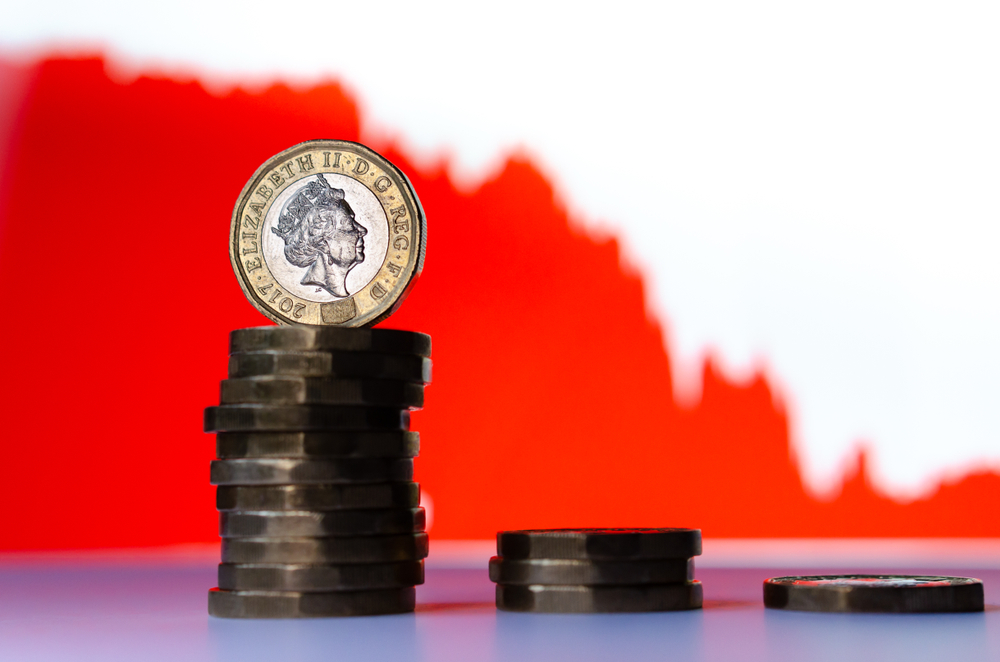
UK continues to fall into an “inflationary hole”
The UK has arguably become the unhappiest country in Europe since the conflict in Ukraine began, and is still struggling to get out of the steep peak of the inflationary and economic crisis. The problems began last spring, and by summer public discontent had erupted into mass strikes that began with the railroad workers’ union. After that, representatives of almost all professions, from teachers and doctors to municipal employees, went on strike, but the government persistently ignored their protests, preferring to replace them with strikebreakers.
The attitude of the state elites and the politicians who represent them, including Prime Minister Rishi Sunak, who succeeded his predecessors Johnson and Truss on a wave of promises to solve economic hardship and social dislocation, was particularly abhorrent to the country’s residents. But instead he has openly adopted a “privatization of profits, socialization of losses” approach, in which the fruits of any successes go to big business and ordinary Britons have to pay for the failures. But the saddest thing was the fact that even with this policy of austerity he could not solve the crisis situation in the country. When Sunak took office, he had a lot of credibility, which he lost very quickly, because he preferred the solution of domestic problems to the tantalizing and interesting international politics.
But the reasons for all the troubles were not only bad governance. The UK suffered from the pan-European economic crisis much more than the EU and Eurozone countries for a certain reason. Compared to Germany or France, the country had objective economic disadvantages that contributed to the crisis of 2022-2023. First, it is a constant flow of migrants from Europe, Africa, India, Pakistan and other regions. The density of the island’s population of 63 million people is very high, and the constant influx of new citizens, often living off various social payments and benefits, lowered the general standard of living and led to rising unemployment. Secondly, the UK has very low labor productivity compared to the continental EU leaders. Poor material, technical and labor support of production in the country, as well as not too progressive labor legislation over many years led to this. As a result, the global economic crisis has doubled all the negative phenomena in the British economy, pushing it to the edge of the abyss.

Annual inflation in the UK peaked in May 2022 when it reached 9.1%. This was a record since 1982, in January of which inflation was 11%. The main drivers of growth then were the rising cost of utilities, particularly gas, and transportation costs caused by the abnormally high cost of petrol. These two items accounted for more than 4% of the May consumer price index. In addition, the cost of food, alcohol and tobacco have risen significantly. Because of this, the Bank of England once again raised the rate to 1.25% last June. This was the maximum value since early 2009 and the increase was the fifth consecutive increase since December 2021, which has not happened once in the history of the Bank. The regulator noted that global inflationary pressures have intensified sharply since the start of Russia’s invasion of Ukraine, particularly due to concerns about supply chain disruption. And tight monetary policy along the lines of the U.S. was supposed to help overcome this inflationary spike. However, the causes of inflation, in practice, turned out to be fundamental, and were not solvable through manipulation of the key rate.
And a year after these measures were taken, the UK continues to be plagued by an inflationary crisis, now multiplied by debt problems. In May 2023, price growth was 8.7%, only slightly down from last year’s highs. The driver remains food inflation of 16-17%, at its peak in 45 years. The cost of meat rose 17% over the year, bread 18%, milk and eggs 29%, and olive oil and sugar 46%. In an attempt to ease food inflation, Rishi Sunak has even considered introducing state control over supermarket prices, but these desperate measures have had little effect so far. Trying to keep up with inflation, the Bank of England continues to frantically raise the key rate, and it has now risen to 5%, the highest level in 16 years, and this is already being called a harbinger of a full-scale mortgage crisis in the country.
Already, mortgage costs on average take more than half of British income, and mortgage rates have reached a 40-year high. All this threatens the collapse of the real estate bubble, with a collapse in housing prices by 20-25%, as in 2008, and turmoil at the banks, which actively invested in it. Once again, the British government’s problems have escalated. The national debt has exceeded the size of the UK economy, reaching 2.6 trillion pounds. And it is already spending up to 10 billion a month to pay the interest on the national debt, and in a year it will be 2.5 times the country’s defense budget. And simply printing money to solve all the problems is no longer an option amid record inflation. In the meantime, mortgage debtors, banks and the state are frozen in anticipation of big shocks, fearing a financial tsunami that risks bringing the British economy to its knees. And with it, the ruling Conservative Party will be dragged to the bottom in the upcoming elections.


Average Rating